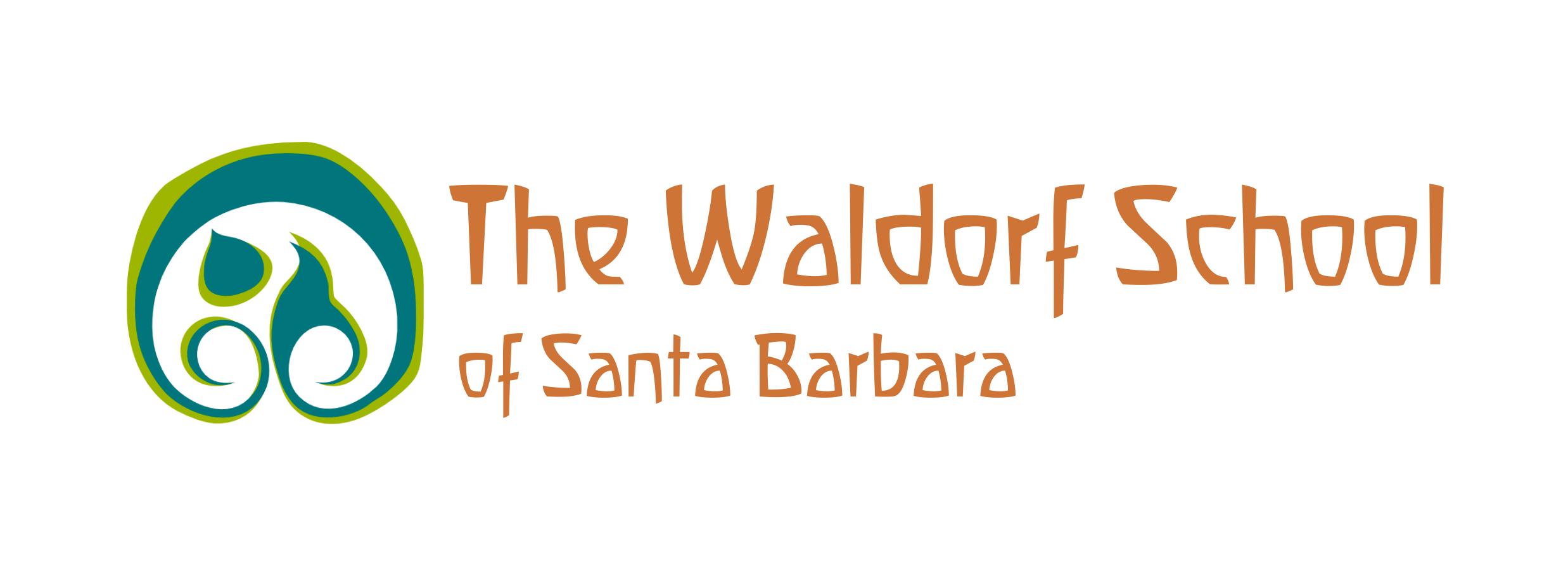Rites of Passage and Love
Dear Members of The Waldorf School of Santa Barbara Community,
One of the signal strengths of Waldorf education is its commitment to rites of passage. We share below remarks Senora Marcela made at the recent Knighting Ceremony for the 6th/7th Graders:
“As our children move through this school year, we are all witnessing an important transition. This is the time when they leave behind the simplicity of childhood and enter a new, more self-aware stage of life. In our society, this transition often happens without much conscious recognition. Children begin to experience strong emotions and an emerging ability to self-reflect, but they often lack the tools or mentors to guide them through it.
In a Waldorf School, we have a unique opportunity: to mentor our students in consciously stepping into this new stage of their lives. One of the ways we do this is through a rite of passage—a process meant to help them understand their growth and embrace the virtues that will guide them into young adulthood.
In medieval times, becoming a knight was a rite of passage that required training, learning a code of conduct, and a ceremony marking the acceptance of new responsibilities. For our class, we have adapted this idea in a meaningful way, using our knighting project and other activities to symbolize their growth.
The knighting process itself has been a way to foster patience, perseverance, and the satisfaction that comes from creating something meaningful with their own hands. This work culminated in a simple yet powerful ceremony on Wednesday evening.”
Thank you, Senora Marcela, for holding this rite of passage. Congratulations 6th/7th Graders on your knighthood.
Our motto at WSSB is “a love-based education that honors the whole child.”
We proclaim this motto proudly but also humbly. We proclaim it proudly because we want to remind ourselves of our priorities: we know that before anything else we want the children in this community to feel loved. That is our motive force; that is our base. We proclaim this motto humbly as love is often difficult and makes amateurs of all of us.
Rudolf Steiner, the founder of Waldorf education, translated the thirteenth chapter of the first Letter of Paul to the Corinthians. Here’s Steiner’s version (found in the book Mantric Sayings and Meditations) of that chapter’s most famous passage:
“Love is benevolent, love does not know envy or jealousy, love does not know bragging, does not know pride, love does not injure what is worthy of respect, love does not seek its advantage, does not let itself be provoked, does not hold bad deeds against someone, does not rejoice in injustice, is delighted only by truth.”
Who can read those words without feeling at once inspired and exposed, ennobled and challenged?
“We go through our lives,” says one contemporary writer, “our years on this Earth, thinking of ourselves as separate. That sense of separateness basically causes every stupid, silly thing we ever do. The little, separate self takes offense when people don’t show us proper respect. The separate self lies, steals, and does unkind things to other people. When we’re separate, everything becomes about protecting and defending ourselves. It can consume our lives.” But then the writer adds: “Every time we do something with respect, with love, with sympathy, with compassion, with caring, with service, we are operating in union.”
Rudolf Steiner himself wrote insightfully about love. Please take your time reading some of his words:
“A soul must be very advanced before deeds can be performed from which nothing is to be gained for itself; but then the world profits all the more. Love is the ‘moral’ sun of the world. A Spiritual Science without love would be a danger for humanity.”
“Our egoism gains nothing from deeds of love—but the world all the more. Occultism says: Love is for the world what the sun is for external life. No soul could thrive if love departed from the world.”
“Love is the ‘moral’ sun of the world. Would it not be absurd if a man who delights in the flowers growing in a meadow were to wish that the sun would vanish from the world? Translated into terms of the moral life, this means: Our deep concern must be that an impulse for sound, healthy development shall find its way into the affairs of humanity. To disseminate love over the earth in the greatest measure possible, to promote love on earth—that and that alone is wisdom.”
To disseminate love over the earth in the greatest measure possible, to promote love on the earth—that and that alone is wisdom.
What ennobling, challenging, and remarkable words from this education’s founder.
Important Dates:
November 18-22: Parent-Teacher Conferences. Early Dismissal Days: 12:45 p.m. (aftercare available)
November 25-29: Thanksgiving Break
December 6: Advent Spiral (details coming soon)
December 7: Winter Faire from 12 to 5 p.m.
December 9: Strings Assembly at 8:45 a.m.
December 13: Faculty Offering at 11:30 a.m. Dismissal at 12:45 p.m.
December 16-January 3: Winter Break
With gratitude,
The WSSB Admin Team
PS Here is the closing verse from the recent WSSB Knighting Ceremony:
The world needs men and women
who cannot be bought;
whose word is their bond;
who put character above wealth;
who will make no compromise with wrong;
whose ambitions are not confined to their own selfish desires;
who are true to their friends through good and bad,
who are not ashamed or afraid to stand for the truth.
PPS Our Annual Giving campaign is underway. Click below to donate.

